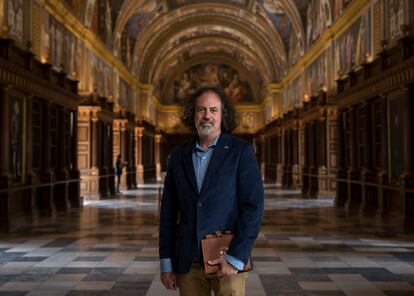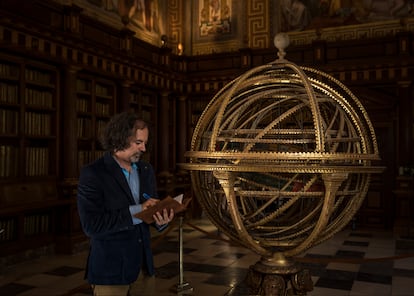Plastic pollution expert Manuel Maqueda: ‘We’re using material that lasts thousands of years to make disposable stuff’
The trailblazer has taken his message to Harvard, where he teaches the importance of the circular economy

In 2010, Manuel Maqueda wandered around Oakland, California, with a watch that didn’t have any numbers or hands. Reflecting his stance on time, the dial simply read “Now!” Neither the future nor the past seemed to matter much to him. He was doing what he loved best: blazing trails. Two years earlier, he had met Captain Charles J. Moore, who discovered the Great Pacific Garbage Patch. “I heard about plastic pollution for the first time,” he recalls. The next morning, he googled “pollution + plastic.” “There was nothing.” Maqueda had an epiphany: utilizing plastic was a design flaw. “We were using a non-biodegradable material that fragmented into particles and lasted thousands of years to make disposable stuff. It’s ridiculous.”
Maqueda – who as a child wanted to study biology but did economics and law because his parents believed that was the best path to “set himself up for success” – decided to tell that story about plastic. “I called Google and told them that Google Maps’ oceans were empty, and that I had the idea of filling them with plastic blobs. They were setting up Google Ocean then and needed content. They summoned me to their Mountain View headquarters, and I signed a bunch of documents.” But the project never got off the ground because Maqueda wanted to start at the beginning. “We had to create a narrative.” That’s how the Plastic Pollution Coalition was born. In 2022, the United Nations drafted an international treaty against plastic pollution that employed his language. “Yes, we can,” he says with great satisfaction.

After 20 years in the United States, Maqueda has returned to Madrid, the city where he was born. We met in the library of the impressive El Escorial Monastery, where there is no plastic in site. “It’s a building designed to last.” These days, he wears a conventional watch that indicates the time he has to pick his children up from school. He teaches circular economy at Harvard University, where he created the first course in regenerative economics. “Being sustainable is the first step; being circular, the second step; and being regenerative, the third and most indispensable step.” His classes are open to everyone, but some students stay longer than others. “I’m not a professor, I don’t even have a PhD, I’m there to make an impact.” For Maqueda, that means “changing influential people’s mindsets … I teach sustainability to professionals, entrepreneurs, [government] ministers, professors. Many come in with the idea that the circular economy is an optional add-on to sustainability, but 80% of the impact is in the design phase, and that means redesigning all products and services. Some people don’t want to hear that and they leave.”
People who specialize in greenwashing – the widespread use of environmentalist discourse to continue doing the same old things – also attend his classes. “I can spot them from a mile away... ‘I’m already part of the circular economy, my company recycles 20% of our bottles,’ they say. They don’t want to learn.” Once, he was approached by 11 managers at a company involved in plastic pyrolysis (turning plastic into fuel). “That’s not what the circular economy is,” he told them. Gradually, they went away.
He says that “I’m the same as I was before, but now I say things with my Harvard credentials and people listen more closely to me.” Maqueda often asks his class: “What is the value of knowledge in a world where information grows exponentially every day? The answer is easy: it tends to be zero. In this context, the only thing that increases its value is wisdom, asking good questions, because they give you the answers.”
Tu suscripción se está usando en otro dispositivo
¿Quieres añadir otro usuario a tu suscripción?
Si continúas leyendo en este dispositivo, no se podrá leer en el otro.
FlechaTu suscripción se está usando en otro dispositivo y solo puedes acceder a EL PAÍS desde un dispositivo a la vez.
Si quieres compartir tu cuenta, cambia tu suscripción a la modalidad Premium, así podrás añadir otro usuario. Cada uno accederá con su propia cuenta de email, lo que os permitirá personalizar vuestra experiencia en EL PAÍS.
¿Tienes una suscripción de empresa? Accede aquí para contratar más cuentas.
En el caso de no saber quién está usando tu cuenta, te recomendamos cambiar tu contraseña aquí.
Si decides continuar compartiendo tu cuenta, este mensaje se mostrará en tu dispositivo y en el de la otra persona que está usando tu cuenta de forma indefinida, afectando a tu experiencia de lectura. Puedes consultar aquí los términos y condiciones de la suscripción digital.









































